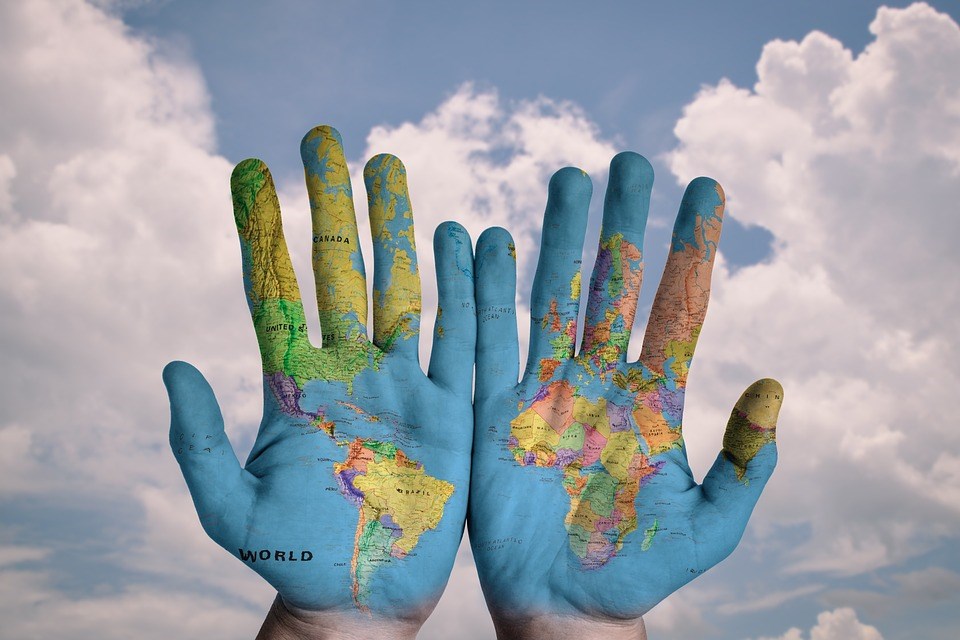The Current’s Anna Maria Tremonti interviewed several people as part of a recent CBC special called, “11 Years: A blueprint for climate action.”
The UN’s Climate Summit (COP24 in Katowice, Poland), was wrapping up on the heels of the Intergovernmental Panel on Climate Change’s October report. That document identified we have 11 years — until 2030 — to make substantial headway on combatting climate change.
When you’re in a movement, says Reverend Dr. Gerald Durley, you have to be willing to do two things: sacrifice and risk. For Durley, that meant giving up his basketball scholarship at Tennessee State University and becoming a student leader in the civil rights movement of the 1960s. After JFK’s assassination, taking risks meant not being afraid to go to jail.
“You’ve also got to be willing to stay the course,” Durley added. “Suppose the civil rights movement had quit? Where would we be today?”
What can the environmental movement learn from the civil rights movement? The latter fought segregation, wanting to protect their children and grandchildren.
Fighting climate change should evoke the same determination.
Today, however, we live in a society where people seem either afraid or not willing to sacrifice or risk. As North Americans, perhaps what we fear most is discomfort.
Moreover, Durley believes in positivity. If we forget about “keeping up with the Joneses,” something wonderful happens. We start speaking to one another again, respecting one another again. We start slowing down and spending more intentional time with our elders, with our children, with each other and, most of all, with ourselves.
The reverend also stresses that to be effective, science, politics and our economic system have to come together on a moral foundation and many of us involved
in the climate action movement see this fight for survival as fundamentally grounded in moral values.
Margaret Klein Salamon, a psychologist and founder-director of Climate Mobilization, agrees that the fight needs to be hopeful but also based on reality and telling the truth. She therefore believes we need to adopt a similar mentality today as was done for the war effort.
The Second World War brought people together. They experienced strength in making the necessary sacrifices and staying the course for the long haul. Those who lived through WWII often look back at that chapter as one of the most important in their lives. Feeling productive, meaningfully employed in a cause greater than them. They felt connected to their neighbours and to their communities, to their country and to their cause.
In so-called “victory gardens” between 1939 and 1945, edibles were planted on any accessible land (including roadsides), as a patriotic duty on the home front.
As much as 40% of American vegetables were grown at home by the people who ate them. In Canada, more than 200,000 victory gardens churned out nearly 57,000 tonnes of vegetables at their peak production. In England, where the need for food was most critical, even sports fields were commandeered to graze livestock.
The U.S. also banned the production of new automobiles. All factory capacity was needed to produce tanks, planes and machine guns. It was a completely different mentality.
Nowadays, we tend to prioritize out of convenience but getting a meal on the table and to work/school on time should be just as important as the habits we form.
Setting examples of how to eat more planet-friendly, to limit purchasing to ethically made and durable products, and to move around with intention, knowing what the true costs really are every time you turn on the engine.
Wishing you all a hope-filled New Year!
Melissa Chaun of Port Moody is an ecologist with a passion for all things sustainable. She is events co-ordinator with the Rivershed Society of BC and volunteers on various city committees. Her column runs monthly.
••••••••••••••••
DO YOUR PART AT XMAS
Here’s what we can give to the planet this Christmas — helping our governments (at all levels) and ourselves transition from the fossil fuel economy:
Daily habits
Action speaks louder than words. We all need to lead by example, being mindful every day that every choice we make has a consequence — what we eat, what we wear, what we buy and how we move around.
Business NOT AS usual
We need to encourage our businesses, both big and small, and all levels of government to adopt relevant messaging that stresses more mindful, sustainable living. Metro Vancouver has been promoting its “Make memories not garbage” campaign since 2011.
Progressive policies & practices
Ask your elected officials to fund vocational programs in the renewable energy sector. Demand that industry use less cement and more natural (wood, hemp) materials for buildings. Support well-researched policy and legal work by such organizations as the Canadian Centre for Policy Alternatives and the West Coast Environmental Law Association.



